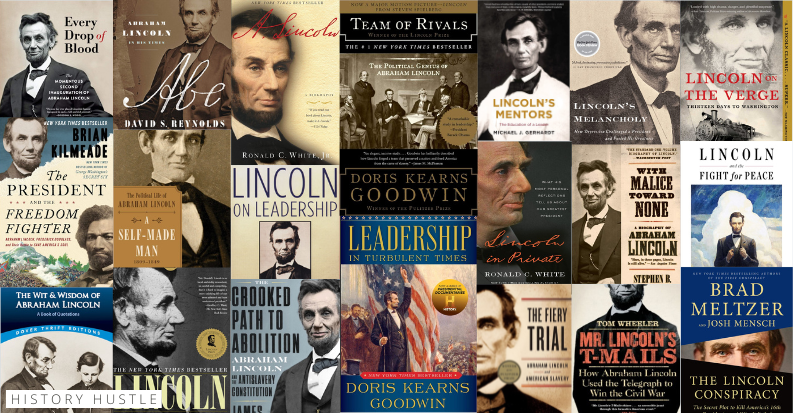
It’s not easy to narrow down the list of 16,000 books about Lincoln to just twenty, but we tried. Get to know more about the 16th US president, and see for yourself why the man is so revered by many. This list of the 20 best books about Abraham Lincoln will give you a good dose of rich history, valuable facts, and interesting info that will surely satisfy the history buff in you.
NOTE: As an Amazon Associate we earn from qualifying purchases.
-
Team of Rivals: The Political Genius of Abraham Lincoln by Doris Kearns Goodwin
“On May 18, 1860, William H. Seward, Salmon P. Chase, Edward Bates, and Abraham Lincoln waited in their hometowns for the results from the Republican National Convention in Chicago. When Lincoln emerged as the victor, his rivals were dismayed and angry. Throughout the turbulent 1850s, each had energetically sought the presidency as the conflict over slavery was leading inexorably to secession and civil war. That Lincoln succeeded, Goodwin demonstrates, was the result of a character that had been forged by experiences that raised him above his more privileged and accomplished rivals. He won because he possessed an extraordinary ability to put himself in the place of other men, to experience what they were feeling, to understand their motives and desires.”
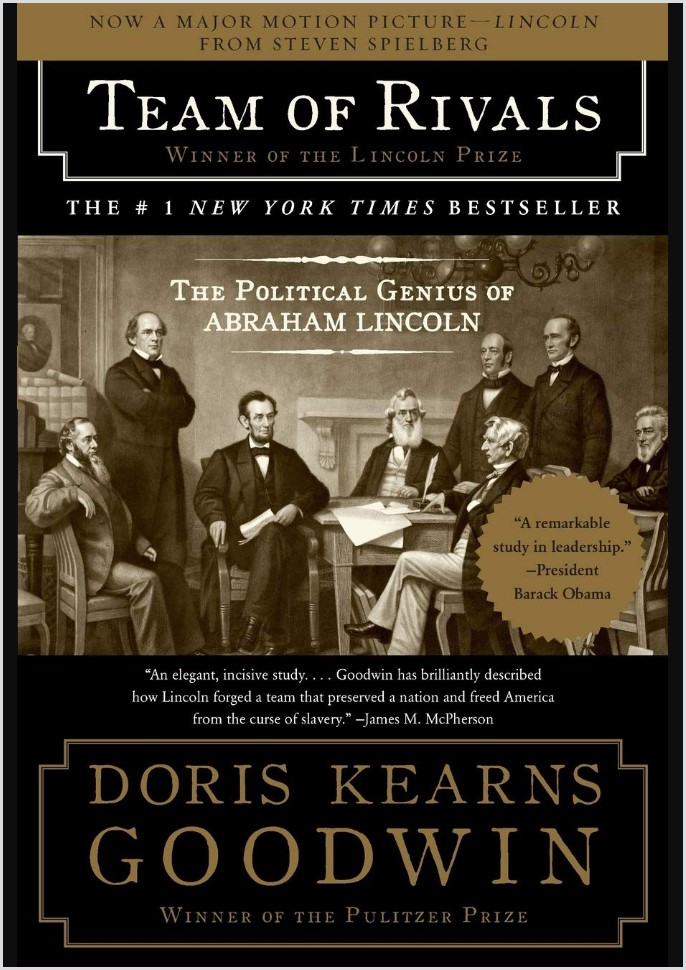
-
Leadership: In Turbulent Times by Doris Kearns Goodwin
“Leadership tells the story of how they all collided (Abraham Lincoln, Theodore Roosevelt, Franklin D. Roosevelt, and Lyndon B. Johnson) with dramatic reversals that disrupted their lives and threatened to shatter forever their ambitions. Nonetheless, they all emerged fitted to confront the contours and dilemmas of their times. At their best, all four were guided by a sense of moral purpose. At moments of great challenge, they were able to summon their talents to enlarge the opportunities and lives of others. Does the leader make the times or do the times make the leader?”
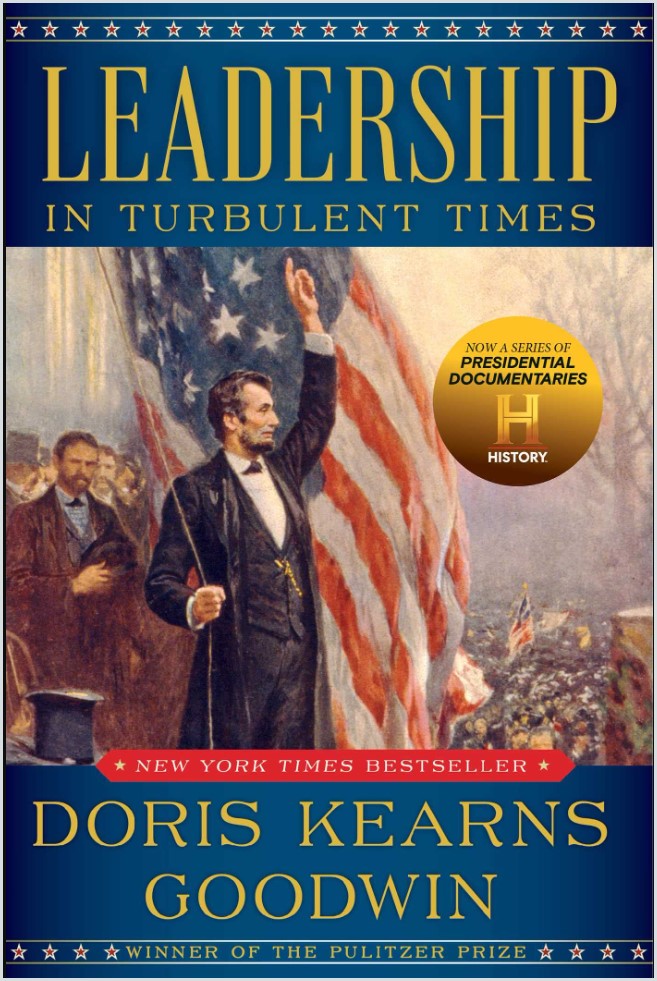
-
The President and the Freedom Fighter: Abraham Lincoln, Frederick Douglass, and Their Battle to Save America’s Soul by Brian Kilmeade
“Abraham Lincoln was White, born impoverished on a frontier farm. Frederick Douglass was Black, a child of slavery who had risked his life escaping to freedom in the North. Neither man had a formal education, and neither had had an easy path to influence. No one would have expected them to become friends—or to transform the country. But Lincoln and Douglass believed in their nation’s greatness. They were determined to make the grand democratic experiment live up to its ideals.”
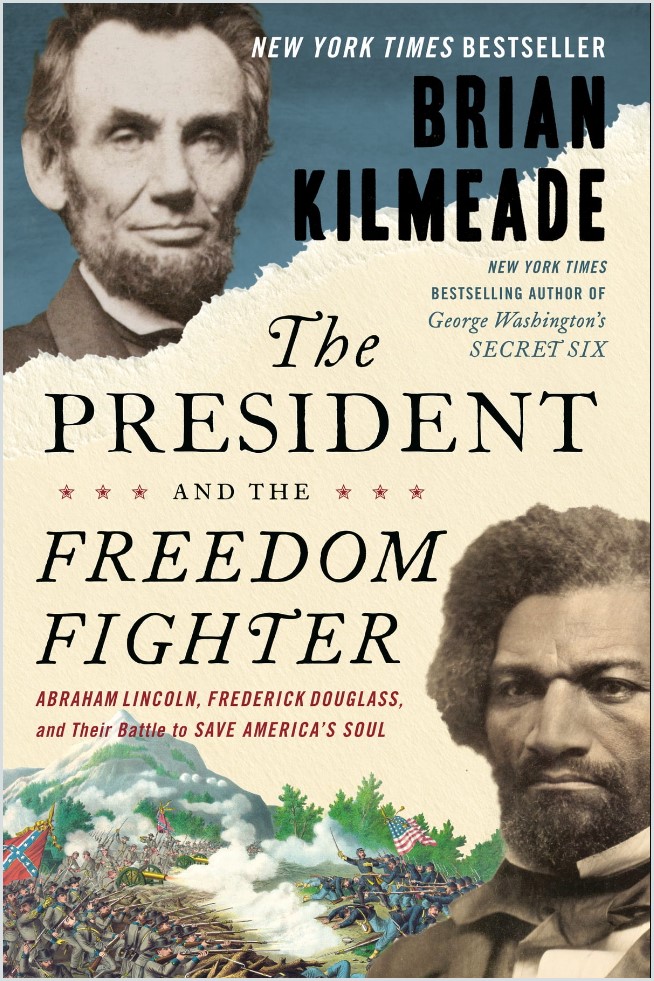
-
The Lincoln Conspiracy: The Secret Plot to Kill America’s 16th President – and Why It Failed by Brad Meltzer and Josh Mensch
“The conspirators were part of a white supremacist secret society that didn’t want an abolitionist in the White House. They planned an elaborate scheme to assassinate the President-elect in Baltimore as Lincoln’s inauguration train passed through, en route to the nation’s capital. The plot was investigated by famed detective Allan Pinkerton, who infiltrated the group with undercover agents, including Kate Warne, one of the first female private detectives in America.”
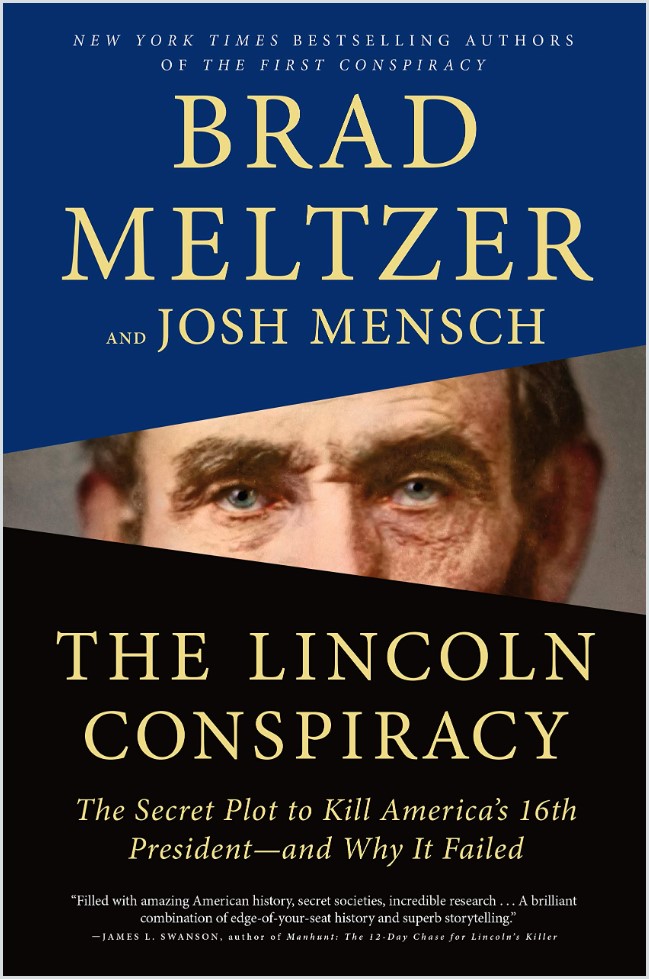
-
Lincoln on Leadership: Executive Strategies for Tough Times by Donald T. Phillips
“Only ten days before Abraham Lincoln took the oath of office in 1861, the Confederate States of America seceded from the Union, taking all Federal agencies, forts, and arenas within their territory. To make matters worse, Lincoln, who was elected by a minority of the popular vote, was thought of by his own advisors as nothing more than a gawky second-rate country lawyer with no leadership experience.”
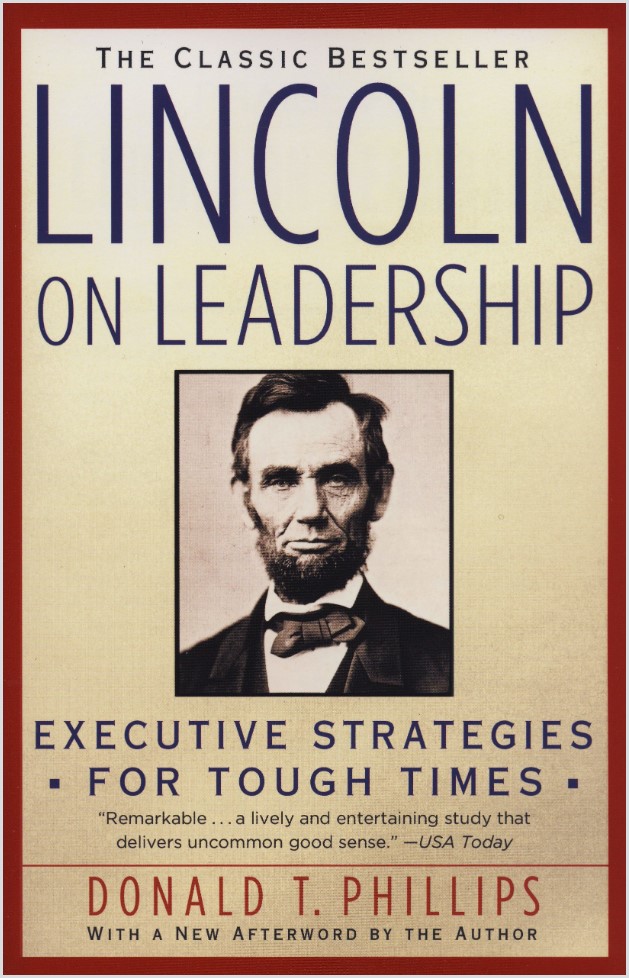
-
Lincoln on the Verge: Thirteen Days to Washington by Ted Widmer
“As a divided nation plunges into the deepest crisis in its history, Abraham Lincoln boards a train for Washington and his inauguration—an inauguration Southerners have vowed to prevent. Lincoln on the Verge charts these pivotal thirteen days of travel, as Lincoln discovers his power, speaks directly to the public, and sees his country up close. Drawing on new research, this riveting account reveals the president-elect as a work in progress, showing him on the verge of greatness, as he foils an assassination attempt, forges an unbreakable bond with the American people, and overcomes formidable obstacles in order to take his oath of office.”
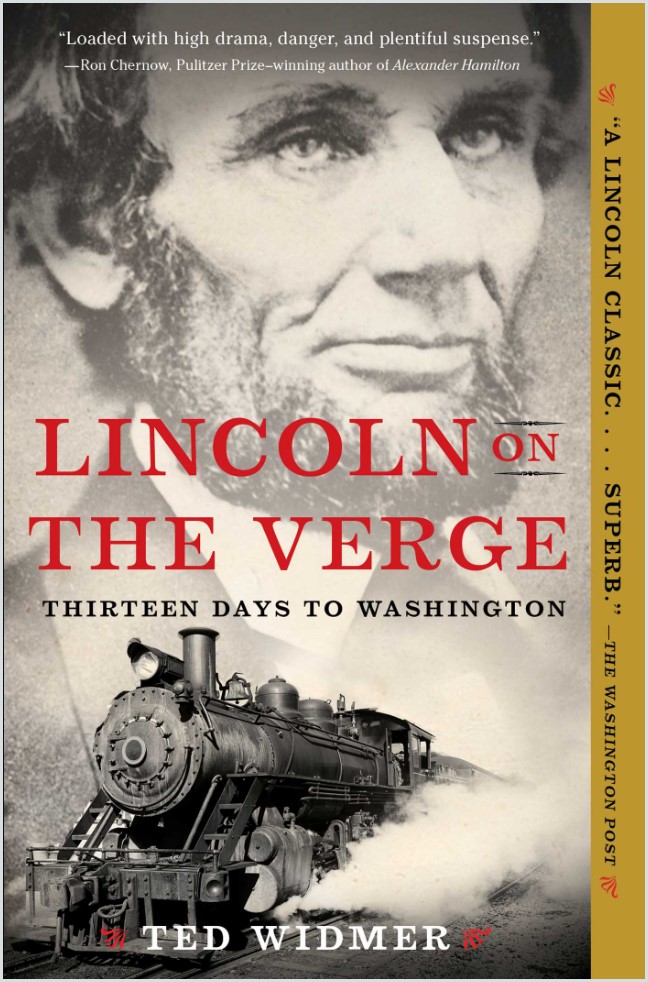
-
Lincoln by David Herbert Donald
“Donald brilliantly depicts Lincoln’s gradual ascent from humble beginnings in rural Kentucky to the ever-expanding political circles in Illinois, and finally to the presidency of a country divided by civil war. Donald goes beyond biography, illuminating the gradual development of Lincoln’s character, chronicling his tremendous capacity for evolution and growth, thus illustrating what made it possible for a man so inexperienced and so unprepared for the presidency to become a great moral leader. In the most troubled of times, here was a man who led the country out of slavery and preserved a shattered Union—in short, one of the greatest presidents this country has ever seen.”
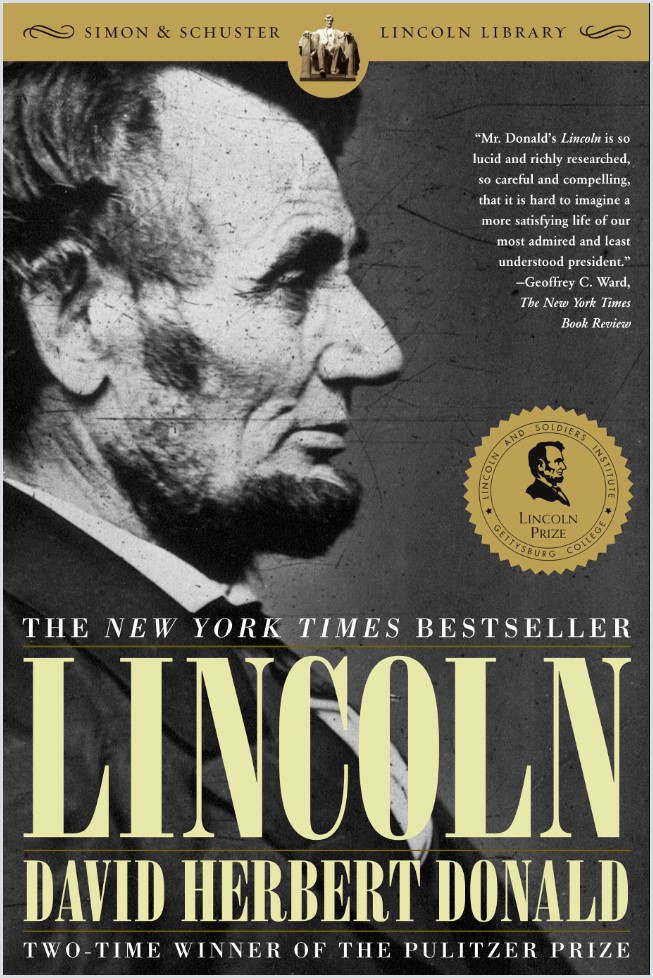
-
A. Lincoln: A Biography by Ronald C. White
“Through meticulous research of the newly completed Lincoln Legal Papers, as well as of recently discovered letters and photographs, White provides a portrait of Lincoln’s personal, political, and moral evolution. White shows us Lincoln as a man who would leave a trail of thoughts in his wake, jotting ideas on scraps of paper and filing them in his top hat or the bottom drawer of his desk; a country lawyer who asked questions in order to figure out his own thinking on an issue, as much as to argue the case; a hands-on commander in chief who, as soldiers and sailors watched in amazement, commandeered a boat and ordered an attack on Confederate shore batteries at the tip of the Virginia peninsula; a man who struggled with the immorality of slavery and as president acted publicly and privately to outlaw it forever; and finally, a president involved in a religious odyssey who wrote, for his own eyes only, a profound meditation on “the will of God” in the Civil War that would become the basis of his finest address.”
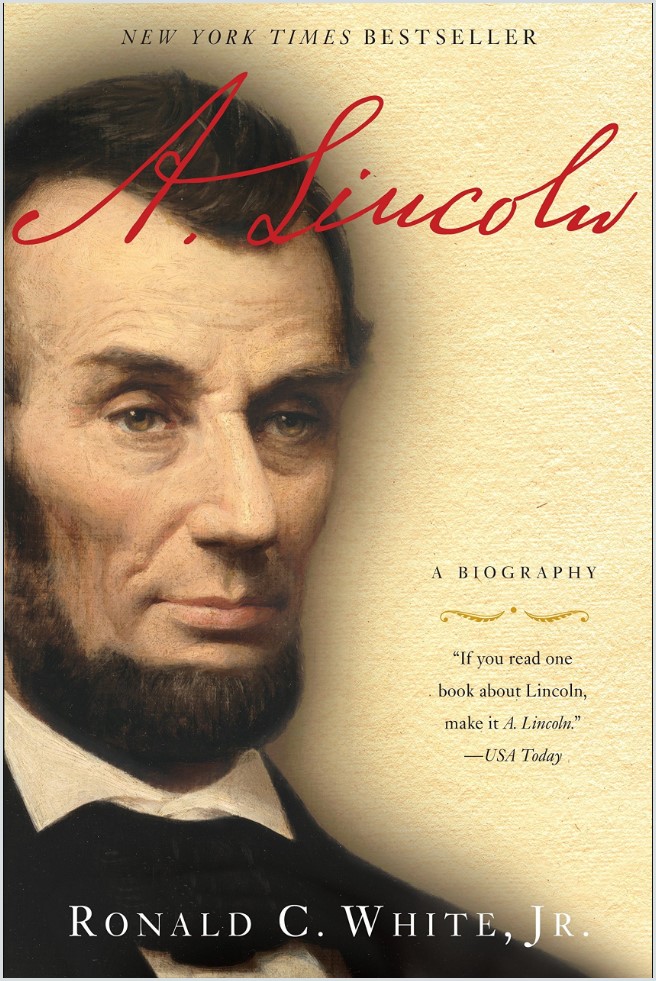
-
Abe: Abraham Lincoln in His Times by David S. Reynolds
“It was a country growing up and being pulled apart at the same time, with a democratic popular culture that reflected the country’s contradictions. Lincoln’s lineage was considered auspicious by Emerson, Whitman, and others who prophesied that a new man from the West would emerge to balance North and South. From New England Puritan stock on his father’s side and Virginia Cavalier gentry on his mother’s, Lincoln was linked by blood to the central conflict of the age. And an enduring theme of his life, Reynolds shows, was his genius for striking a balance between opposing forces. Lacking formal schooling but with an unquenchable thirst for self-improvement, Lincoln had a talent for wrestling and bawdy jokes that made him popular with his peers, even as his appetite for poetry and prodigious gifts for memorization set him apart from them through his childhood, his years as a lawyer, and his entrance into politics.”
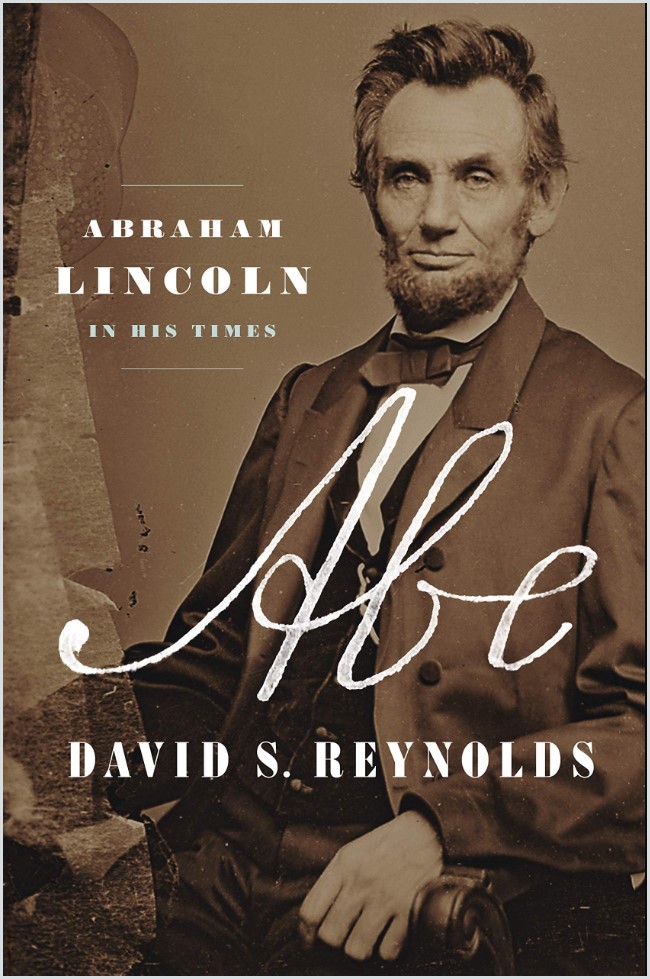
-
The Wit and Wisdom of Abraham Lincoln: A Book of Quotations by Abraham Lincoln and Bob Blaisdell
“The most eloquent of American presidents, Lincoln seemed to have a comment — sagacious or humorous — on just about anything that mattered. This concise compendium offers his astute observations on a variety of subjects—from women to warfare.”
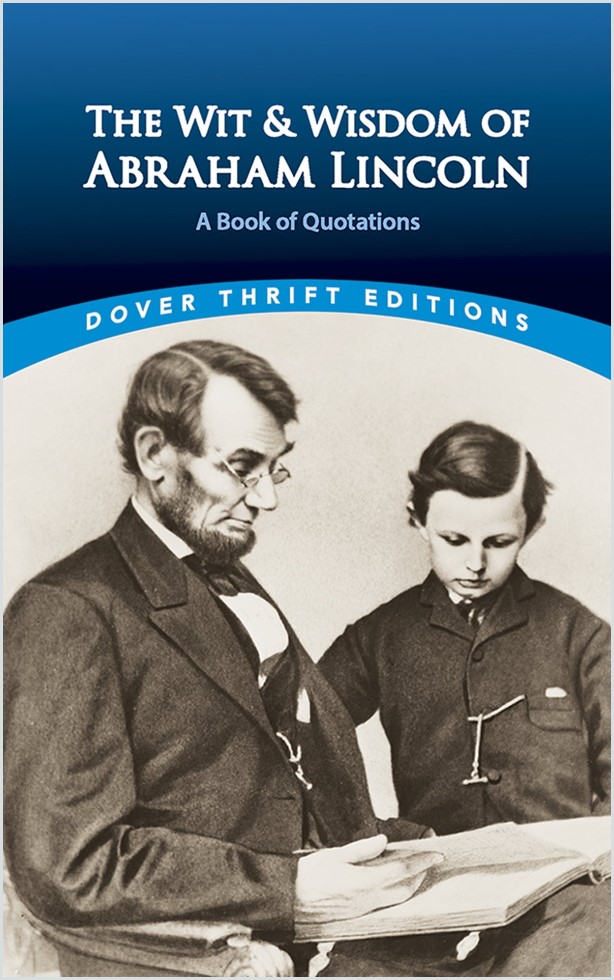
-
Lincoln’s Melancholy: How Depression Challenged a President and Fueled His Greatness by Joshua Wolf Shenk
“Giving shape to the deep depression that pervaded the sixteenth president’s adult life, Joshua Wolf Shenk’s Lincoln’s Melancholy reveals how this illness influenced both the president’s character and his leadership. Lincoln forged a hard path toward mental health from the time he was a young man. Shenk draws from historical record, interviews with Lincoln scholars, and contemporary research on depression to understand the nature of his unhappiness. In the process, he discovers that the President’s coping strategies — among them, a rich sense of humor and a tendency toward quiet reflection — ultimately helped him to lead the nation through its greatest turmoil.”
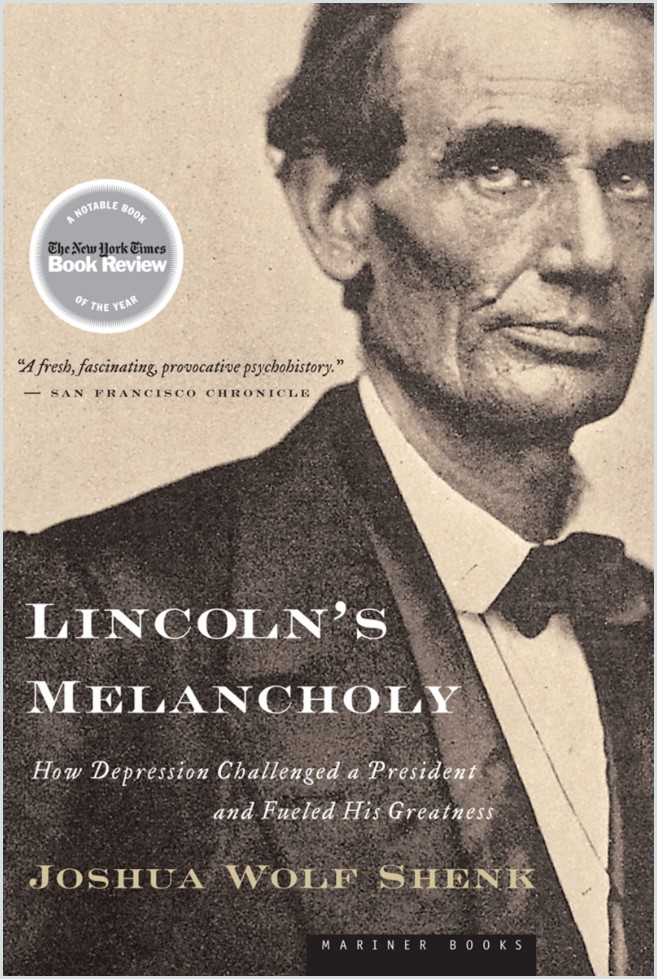
-
With Malice Toward None: A Life of Abraham Lincoln by Stephen B. Oates
“Oates masterfully charts, with the pacing of a novel, Lincoln’s rise from bitter poverty in America’s midwestern frontier to become a self-made success in business, law, and regional politics. The second half of this riveting work examines his legendary leadership on the national stage as president during one of the country’s most tumultuous and bloody periods, the Civil War years, which concluded tragically with Lincoln’s assassination.”
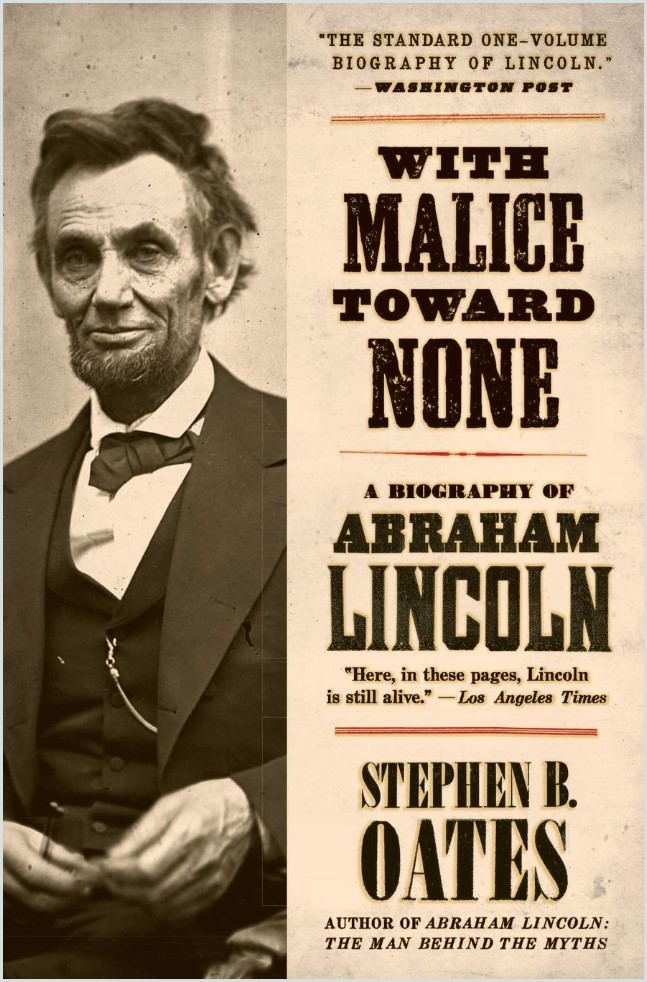
-
The Fiery Trial: Abraham Lincoln and American Slavery by Eric Foner
“Selected as a Notable Book of the Year by the New York Times Book Review, this landmark work gives us a definitive account of Lincoln’s lifelong engagement with the nation’s critical issue: American slavery. A master historian, Eric Foner draws Lincoln and the broader history of the period into perfect balance. We see Lincoln, a pragmatic politician grounded in principle, deftly navigating the dynamic politics of antislavery, secession, and civil war. Lincoln’s greatness emerges from his capacity for moral and political growth.”
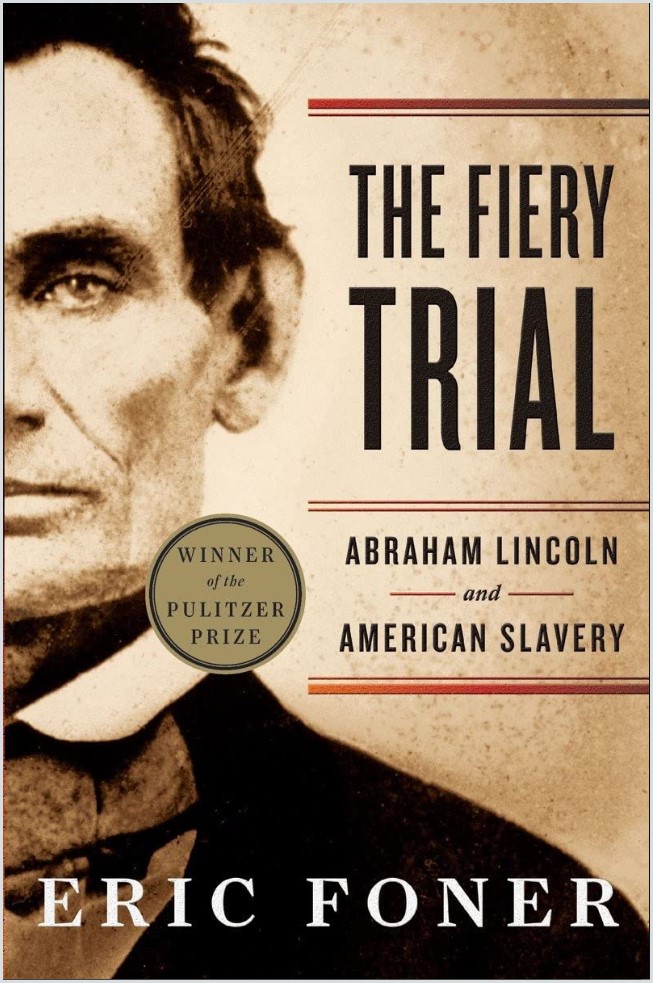
-
Every Drop of Blood: The Momentous Second Inauguration of Abraham Lincoln by Edward Achorn
“Edward Achorn reveals the nation’s capital on that momentous day―with its mud, sewage, and saloons, its prostitutes, spies, reporters, social-climbing spouses and power-hungry politicians―as a microcosm of all the opposing forces that had driven the country apart. A host of characters, unknown and famous, had converged on Washington―from grievously wounded Union colonel Selden Connor in a Washington hospital and the embarrassingly drunk new vice president, Andrew Johnson, to poet-journalist Walt Whitman; from soldiers’ advocate Clara Barton and African American leader and Lincoln critic-turned-admirer Frederick Douglass (who called the speech “a sacred effort”) to conflicted actor John Wilkes Booth―all swirling around the complex figure of Lincoln.”
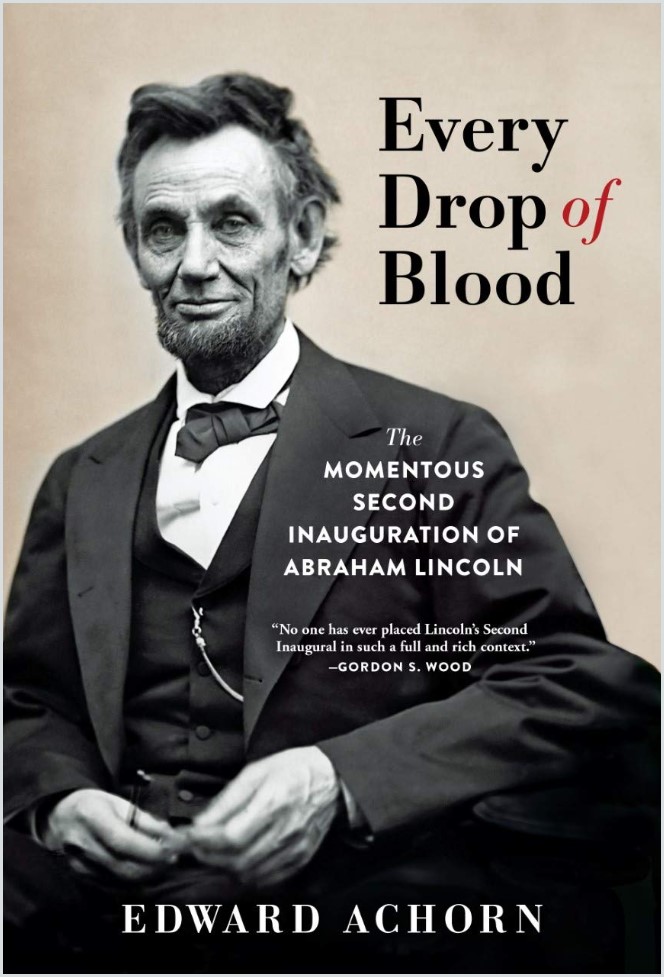
-
Lincoln and the Fight for Peace by John Avlon
“The power of Lincoln’s personal example in the closing days of the war offers a portrait of a peacemaker. He did not demonize people he disagreed with. He used humor, logic, and scripture to depolarize bitter debates. Balancing moral courage with moderation, Lincoln believed that decency could be the most practical form of politics, but he understood that people were more inclined to listen to reason when greeted from a position of strength. Ulysses S. Grant’s famously generous terms of surrender to General Robert E. Lee at Appomattox that April were an expression of a president’s belief that a soft peace should follow a hard war.”
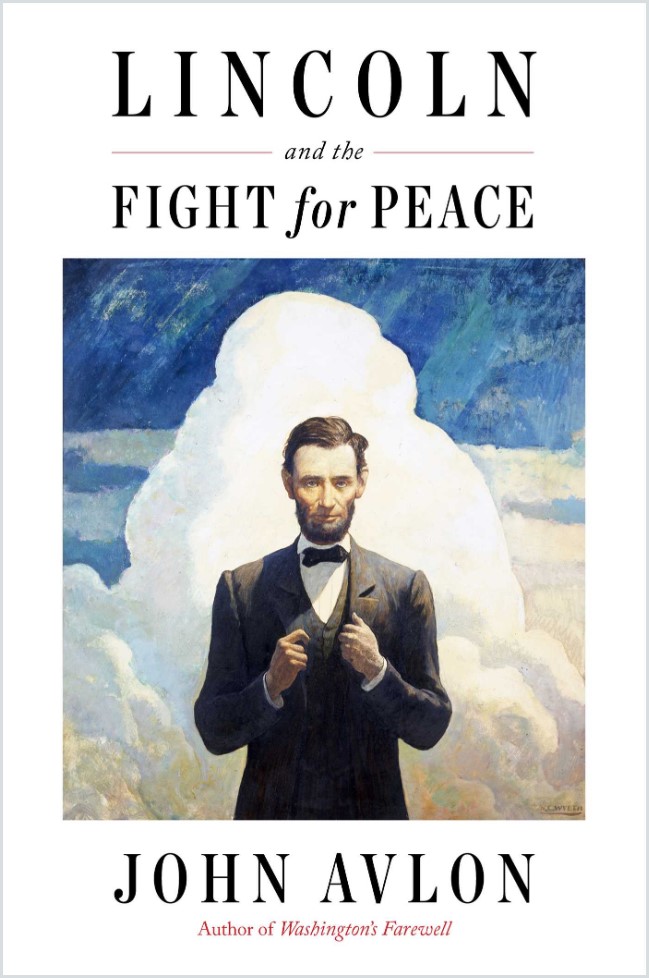
-
The Crooked Path to Abolition: Abraham Lincoln and the Antislavery Constitution by James Oakes
“Lincoln adopted the antislavery view that the Constitution made freedom the rule in the United States, slavery the exception. Where federal power prevailed, so did freedom. Where state power prevailed, that state determined the status of slavery, and the federal government could not interfere. It would take state action to achieve the final abolition of American slavery. With this understanding, Lincoln and his antislavery allies used every tool available to undermine the institution. Wherever the Constitution empowered direct federal action―in the western territories, in the District of Columbia, over the slave trade―they intervened. As a congressman in 1849 Lincoln sponsored a bill to abolish slavery in Washington, DC. He reentered politics in 1854 to oppose what he considered the unconstitutional opening of the territories to slavery by the Kansas–Nebraska Act. He attempted to persuade states to abolish slavery by supporting gradual abolition with compensation for slaveholders and the colonization of free Blacks abroad.”
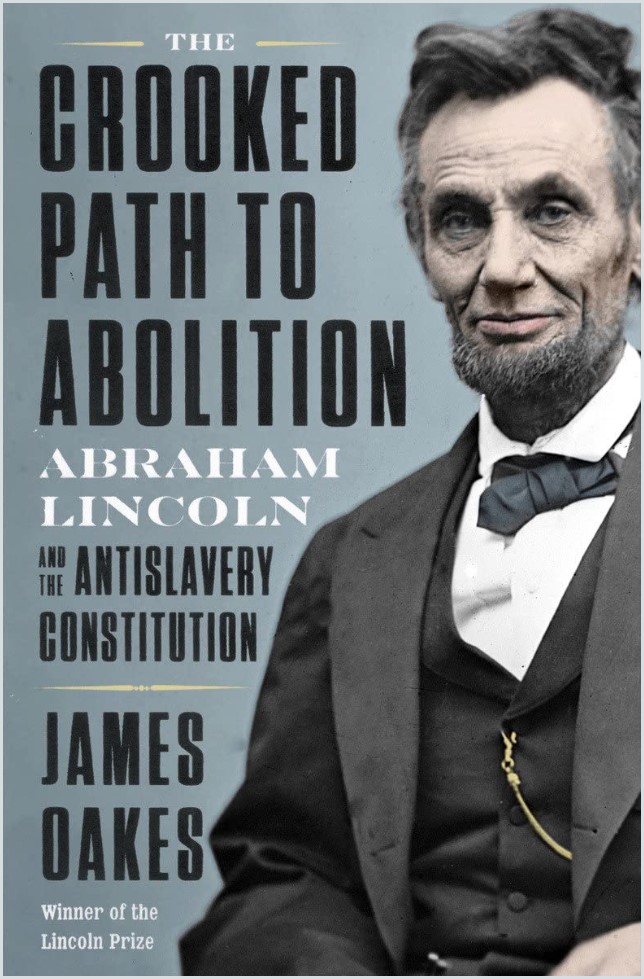
-
Lincoln in Private: What His Most Personal Reflections Tell Us About Our Greatest President by Ronald C. White
“Now, renowned Lincoln historian Ronald C. White walks readers through twelve of Lincoln’s most important private notes, showcasing our greatest president’s brilliance and empathy, but also his very human anxieties and ambitions. We look over Lincoln’s shoulder as he grapples with the problem of slavery, attempting to find convincing rebuttals to those who supported the evil institution (“As I would not be a slave, so I would not be a master. This expresses my idea of democracy.”); prepares for his historic debates with Stephen Douglas; expresses his private feelings after a defeated bid for a Senate seat (“With me, the race of ambition has been a failure—a flat failure”); voices his concerns about the new Republican Party’s long-term prospects; develops an argument for national unity amidst a secession crisis that would ultimately rend the nation in two; and, for a president many have viewed as not religious, develops a sophisticated theological reflection in the midst of the Civil War (“it is quite possible that God’s purpose is something different from the purpose of either party”). Additionally, in a historic first, all 111 Lincoln notes are transcribed in the appendix, a gift to scholars and Lincoln buffs alike.”
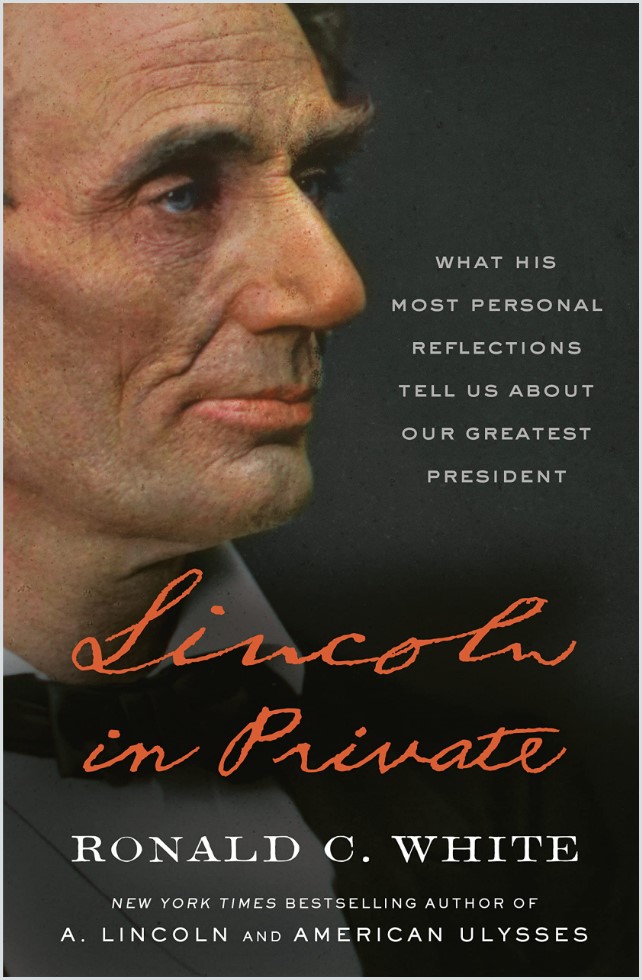
-
A Self-Made Man: The Political Life of Abraham Lincoln by Sidney Blumenthal
“The first of a multivolume history of Lincoln as a political genius – from his obscure beginnings to his presidency, his assassination, and the overthrow of his post-Civil War dreams of Reconstruction. This first volume traces Lincoln from his painful youth, describing himself as “a slave”, to his emergence as the man we recognize as Abraham Lincoln.”
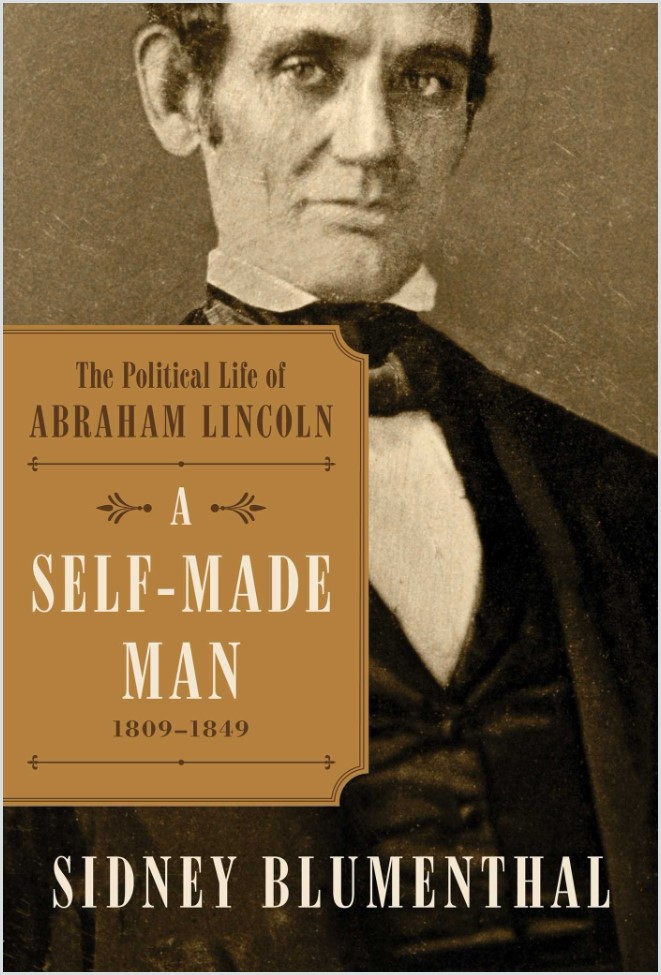
-
Lincoln’s Mentors: The Education of a Leader by Michael J. Gerhardt
“As Michael J. Gerhardt reveals, Lincoln’s reemergence followed the same path he had taken before, in which he read voraciously and learned from the successes, failures, oratory, and political maneuvering of a surprisingly diverse handful of men, some of whom he had never met but others of whom he knew intimately—Henry Clay, Andrew Jackson, Zachary Taylor, John Todd Stuart, and Orville Browning. From their experiences and his own, Lincoln learned valuable lessons on leadership, mastering party politics, campaigning, conventions, understanding and using executive power, managing a cabinet, speechwriting and oratory, and—what would become his most enduring legacy—developing policies and rhetoric to match a constitutional vision that spoke to the monumental challenges of his time.”
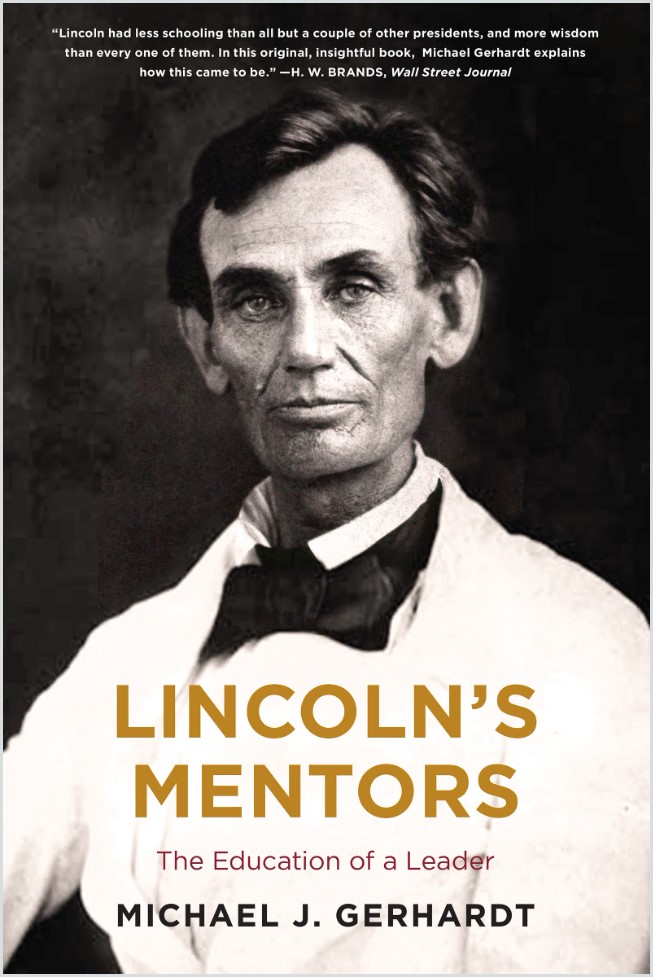
-
Mr. Lincoln’s T-Mails: How Abraham Lincoln Used the Telegraph to Win the Civil War by Tom Wheeler
“Abraham Lincoln’s two great legacies to history—his extraordinary power as a writer and his leadership during the Civil War—come together in this close study of the President’s use of the telegraph. Invented less than two decades before he entered office, the telegraph came into its own during the Civil War. In a jewel–box of historical writing, Wheeler captures Lincoln as he adapted his folksy rhetorical style to the telegraph, creating an intimate bond with his generals that would ultimately help win the war.”
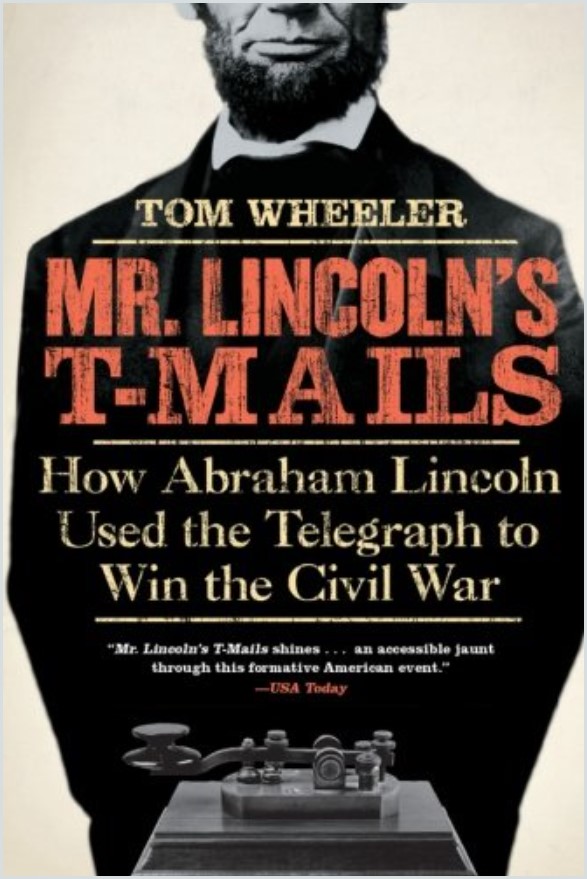
For further reading about Abraham Lincoln, here are a few more that are worth checking out:
Manhunt: The 12-Day Chase for Lincoln’s Killer by James L. Swanson
“The murder of Abraham Lincoln set off the greatest manhunt in American history–the pursuit and capture of John Wilkes Booth. From April 14 to April 26, 1865, the assassin led Union cavalry troops on a wild, 12-day chase from the streets of Washington, D.C., across the swamps of Maryland, and into the forests of Virginia, while the nation, still reeling from the just-ended Civil War, watched in horror and sadness.”
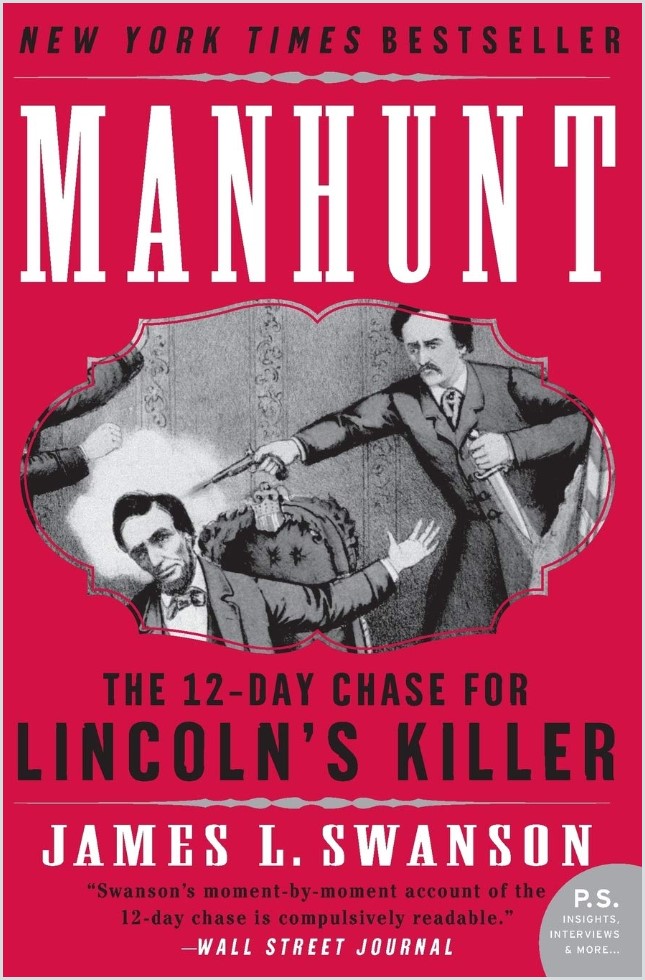
Lincoln and the Irish: The Untold Story of How the Irish Helped Abraham Lincoln Save the Union by Niall O’Dowd
“When he was voted into the White House, Lincoln surrounded himself with Irish staff, much to the chagrin of a senior aide who complained about the Hibernian cabal. And the Irish would repay Lincoln’s faith—their numbers and courage would help swing the Civil War in his favor, and among them would be some of his best generals and staunchest advocates.”
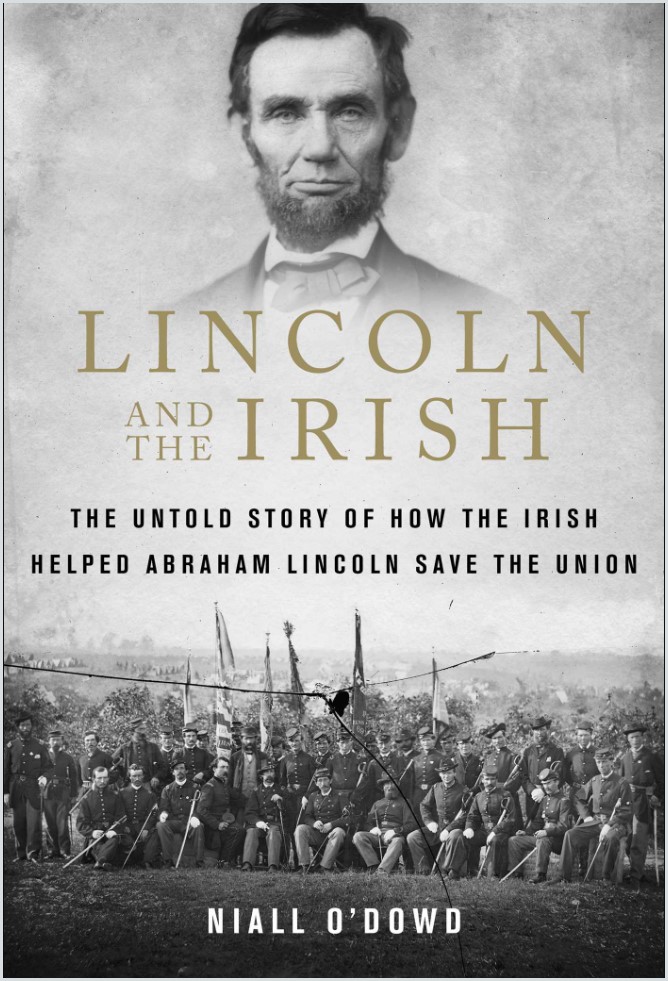
Lincoln’s Battle with God: A President’s Struggle with Faith and What It Meant for America by Stephen Mansfield
“Abraham Lincoln is the most beloved of all U.S. presidents. He freed the slaves, gave the world some of its most beautiful phrases, and redefined the meaning of America. He did all of this with wisdom, compassion, and wit.
Yet, throughout his life, Lincoln fought with God. In his early years in Illinois, he rejected even the existence of God and became the village atheist. In time, this changed but still he wrestled with the truth of the Bible, preachers, doctrines, the will of God, the providence of God, and then, finally, God’s purposes in the Civil War. Still, on the day he was shot, Lincoln said he longed to go to Jerusalem to walk in the Savior’s steps.”
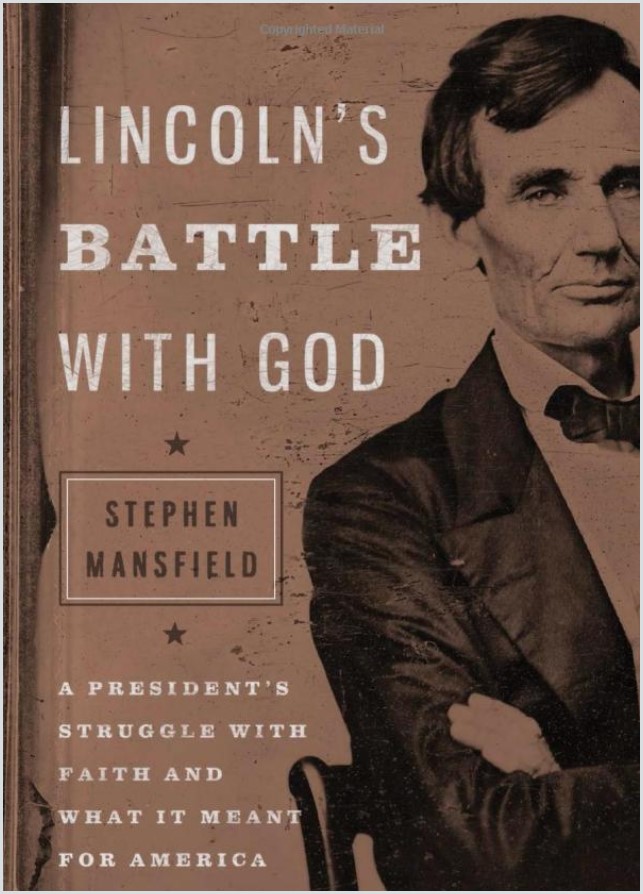
Ways and Means: Lincoln and His Cabinet and the Financing of the Civil War by Roger Lowenstein
“Roger Lowenstein reveals the largely untold story of how Lincoln used the urgency of the Civil War to transform a union of states into a nation. Through a financial lens, he explores how this second American revolution, led by Lincoln, his cabinet, and a Congress studded with towering statesmen, changed the direction of the country and established a government of the people, by the people, and for the people.”
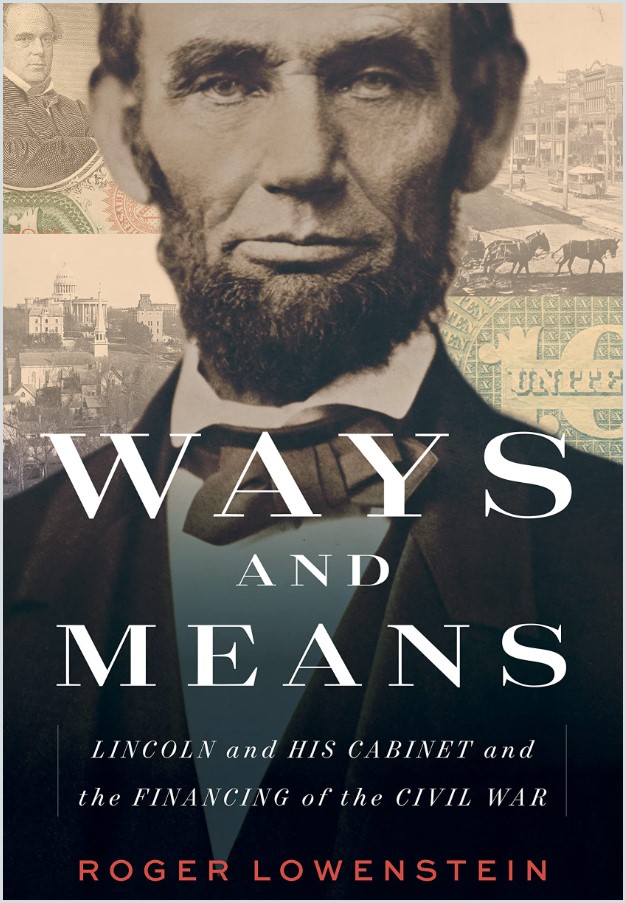
Abraham Lincoln and Mexico: A History of Courage, Intrigue and Unlikely Friendships by Michael Hogan
“This book by a noted Ph.D. historian is one of the best books available about historical relations between the United States and Mexico. It shines new light on reasons for the US invasion of Mexico in 1846, opposition by Abraham Lincoln and other politicians to the unjustified and unconstitutional decision by President Polk to go to war, the importance of the ensuing war against Mexico, the resulting territorial seizures by the United States, the impact both nationally and internationally to both countries, the troubling legacy even today, and the result of silences that have been pervasive over the years regarding this conflict. It examines all aspects of this history based on actual documents in government, university, and private institutions in both the US and Mexico, including citations to these documents and the complete text for many of them in the Appendix.”
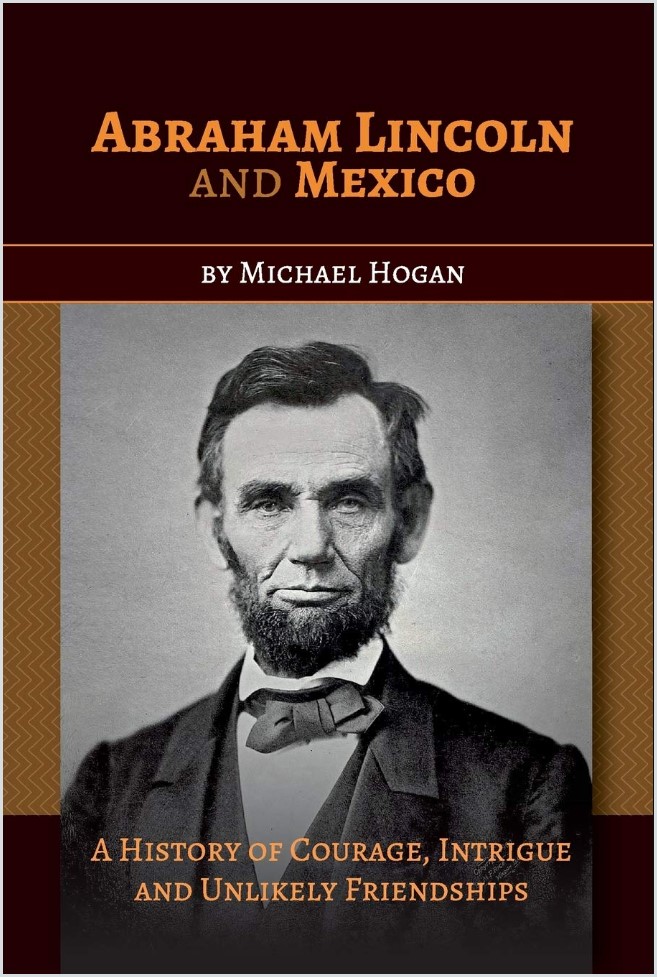
If you’re looking for books about Tudor history or WWII history, check out our respective posts here!